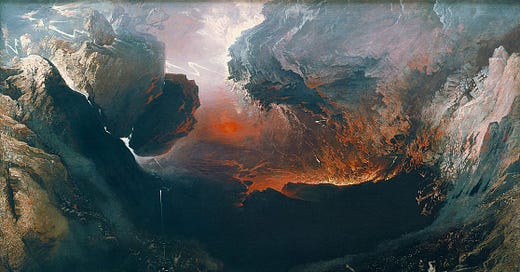Writing history as if every event is inevitable is probably what has turned more students off the study of history than anything else, the notion that history is fixed and pre-determined.
Perhaps that’s why more students are attracted to modern history than ancient history. Humans seem to have a greater ability to shape recent events than ancient ones.
It’s nearly impossible to plausibly create an alternative narrative from events long ago, such as the first 2000 years of written Western history. I outlined the history of Jerusalem to 70 A.D, which is in many ways a history of the Western world. Ever since the ancient Hebrews recognized a God of history, humans have seen events as not simply the result of randomness and chaos but part of a coherent narrative and a divine relationship, even if the detailed meaning of that narrative is not clear until years, decades, or even centuries later.
Muslims tend to go even further than the ancient Hebrews and Christians, asserting that God pre-determines almost everything. “Kismet,” or destiny, fate, the will of Allah determines or even pre-determines the lives of every Muslim. It is one of six articles of faith in Islam.
The further back in history one explores, the harder it is to think of plausible alternatives. Details matter less, and one can more easily embrace a deterministic view.
“Either we live by accident and die by accident, or we live by plan and die by plan,” wrote Thornton Wilder in The Bridge of San Luis Rey.
The concepts of destiny, fate, a predetermined course of events — divine providence, God’s intervention in the world, at least occasionally, or the less precise concept of “karma” — are highly popular and widely believed, even among skeptics in secular societies.
Abraham Lincoln as America’s Secular Theologian-in-Chief
President during the American civil war, Abraham Lincoln was a religious skeptic. He was not a member of any religious community. Yet he frequently cited divine providence. In 1864, he wrote a friend:
Keep reading with a 7-day free trial
Subscribe to Slender Threads / Global Citizens / Public History to keep reading this post and get 7 days of free access to the full post archives.




